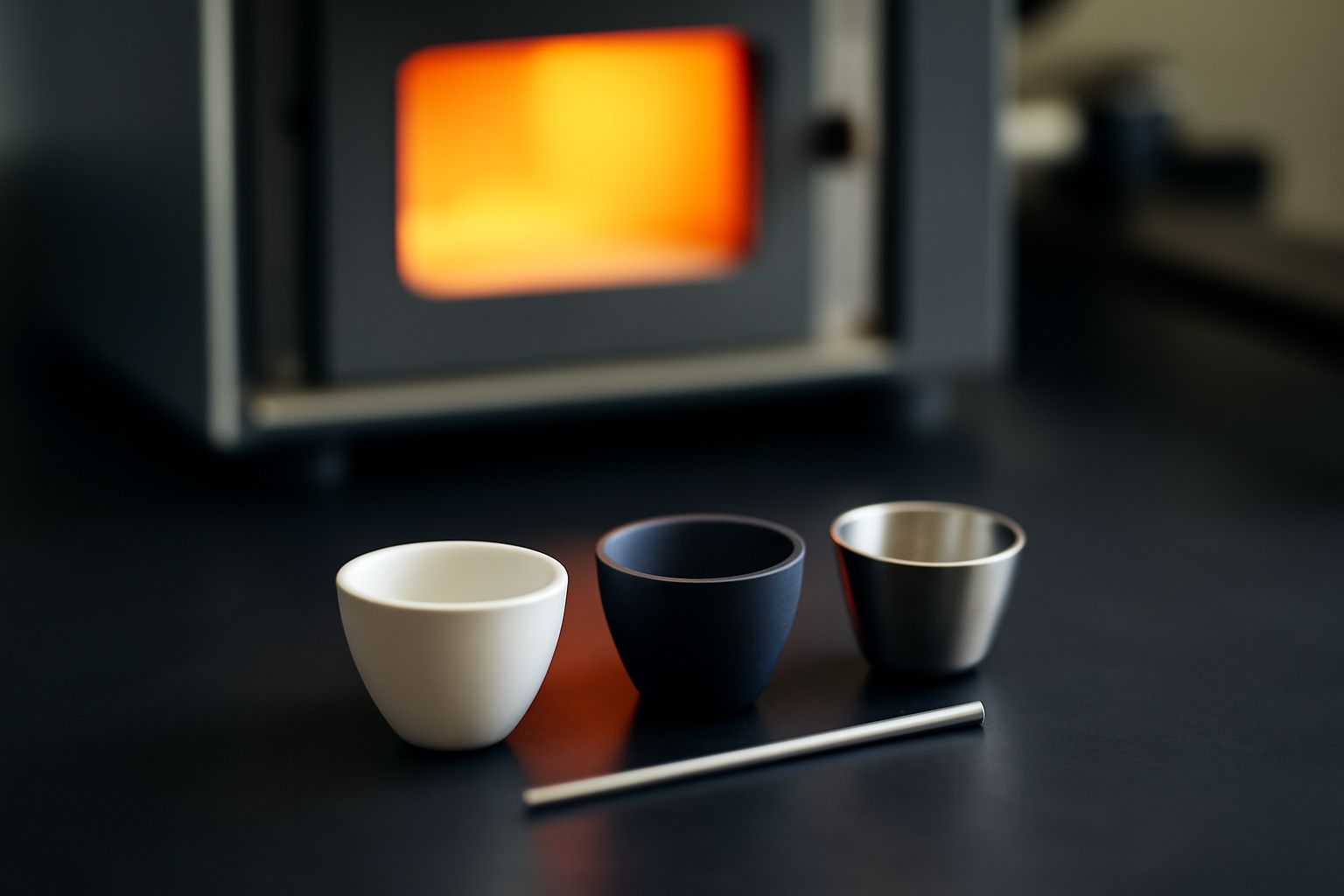Your cart is empty.
shop now
Your cart is empty.
shop now
New materials are changing every industry, but for makers and users of thermal analysis crucibles, the change is happening even faster than many realize.
Recent breakthroughs in materials science have made thermal analysis crucibles stronger, lighter, and more reliable, expanding their applications in aerospace, electronics, pharmaceuticals, and environmental research.

As I watch trends in international research and engineering, I notice one thing: every time new materials get adopted, the demands on crucibles change. Companies now want more customized solutions, and new fields are joining the race. To stay useful, crucibles need to keep up—there is no room for falling behind.
Aerospace players now need thermal analysis crucibles that can withstand temperatures few materials ever experience, all while keeping weight to a minimum.
In recent years, improved ceramics, new alloys, and advanced coatings have allowed crucibles used in high-temperature aerospace testing to reach testing ranges above 1600°C, without cracking or reacting with the samples they hold.
| Development | Impact on Crucible Market | Example or Data Source |
|---|---|---|
| Ultra-High Temp Alloys | Allows thermal analysis in jet engine and rocket material R&D | ScienceDirect, 2019 |
| Advanced Ceramics (Y2O3, AlN) | Reduces contamination, boosts chemical resistance in tests | Yttrium oxide |
| Microstructure Controls | Custom-designed for improved thermal expansion matching | Keysight, 2021 |
| Weight-Reducing Designs | Crucibles with thin walls, hollow sections for weight savings | NASA, 2020 |
With more jet engines and spacecraft parts being designed each year, the need for crucibles that do not deform or contaminate even under record heat is clear. Aerospace research cannot afford to compromise when it comes to thermal testing. Every breakthrough here calls for equally advanced crucible technology. Success is now measured by precision and speed—not just survival at high temperatures.
Electronics makers rely on new generations of crucibles to analyze microchips, polymers, and advanced composites as devices shrink and tests grow more sensitive.
Next-generation materials like sapphire and ultra-pure alumina are making thermal analysis crucibles more accurate and less prone to contamination, meeting the demands for high-precision electronics research and quality control.
| Material | Benefit for Electronics | Example/Application |
|---|---|---|
| Sapphire Crucibles | Scratch-resistant, inert, ideal for microchip analysis | Used in semiconductor fabrication |
| Alumina (99.99%) | Low impurity, high-temperature stability for pure materials tests | ScienceDirect resource |
| Precision Machining | Allows custom sizing for chip, battery, and sensor research | Custom batch production—market data: MarketsandMarkets 2023 |
| Bio-based Coatings | Reduces leftover sample risk, eases cleaning for rapid cycles | Nature, 2021 |
Electronic devices are evolving faster than ever. Each new smartphone or car battery project needs tests that are both more sensitive and more repeatable. Because of this, lab workers and engineers rely on the purity and predictability of crucibles to keep quality assurance on track. Successful electronics research often comes down to selecting the right crucible—there is no shortcut here.
Drug developers and pharmaceutical labs now see thermal analysis crucibles as mission-critical tools for analyzing new chemicals and tracking stability through the supply chain.
Precision-engineered crucibles are used to measure melting points, purity, and thermal stability in new drug compounds, ensuring every test produces reliable results that meet strict global standards.
| Requirement | Why Crucibles Matter | Reference |
|---|---|---|
| Melting Point Determination | Critical in drug formulation and purity checks | Differential Scanning Calorimetry |
| Trace Contamination Elimination | Reduces false readings for sensitive pharmaceuticals | NCBI, 2012 |
| Batch Testing Speed | Allows high-volume, repeatable analysis for each shipment | FDA process guidance, 2023 |
| Global Regulation Compliance | Passes strict USP and EU standards for laboratory equipment | European Pharmacopeia, 2022 |
I have seen projects where the whole outcome depended on one batch of crucibles doing their job. In pharmaceutical R&D, both speed and trust matter. Reliable analysis ties directly to safety and legal approvals. As each new compound comes to market, labs depend on thermal analysis crucibles to catch challenges before drugs move to the next phase. The margin for error is small, and the stakes could not be higher.
With more eco regulations and green goals worldwide, crucible makers are moving toward sustainable materials and longer product lifetimes.
New eco-friendly designs use recyclable metals, biodegradable components, and processes with less carbon emission, aligning with both customer demand and international environmental targets.
| Sustainability Change | Effect on Crucible Development | Example / Source |
|---|---|---|
| Recycled Aluminum/Platinum | Maintains purity, reduces resource use | The Aluminum Association |
| Biodegradable Inserts | Cuts landfill; supports one-time-use in drug/environmental analysis | Science of The Total Environment, 2022 |
| Low-Emission Manufacturing | Lowers CO2 output from production | Environmental Protection Agency (EPA) 2023 |
| Reusable and Modular Crucibles | Supports more tests before replacement, lessens total waste | Based on user feedback—REDTHERMO internal data |
Today, every supplier—from labs to manufacturers—faces stricter sustainability audits. If a crucible cannot meet green standards, customers look elsewhere. Many clients now ask about recycling programs, supply chain impact, and even "cradle to grave" reports for every purchase. As a result, the thermal analysis crucible market is changing, with eco-innovation pushing both technology and brand value forward.
Materials science progress is transforming the thermal analysis crucible market for industries worldwide, raising standards in performance, accuracy, and sustainability.